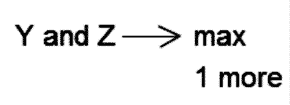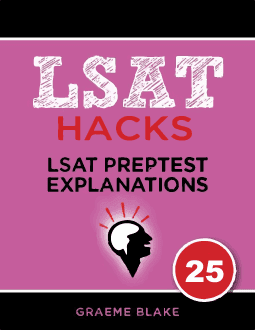A is wrong. There is no rule that tells what happens if K goes with Valois and M goes with Xerxes. This could be true.
B is CORRECT. If we give K to YossariaM and N to Zalamea then five people are with Yossarian and Zalamea. We’ve only got one person, M, to go with Valois or Xerxes. We can’t leave any of them empty.
Remember this deduction?

C is wrong, though very tempting. L is already with Zalamea. So giving L and N to Zalemea means just four people are with Yossarian and Zalamea. We could put N with Xerxes and K with Valois. C could be true.
D is wrong. There are no rules about N being with Valois and K being with Zalamea. If we give N to Xerxes, everything works out.
E is wrong. There are no rules about putting M with Xerxes and K with Z. We could still put N with Valois and everything works out.


Leave a Reply